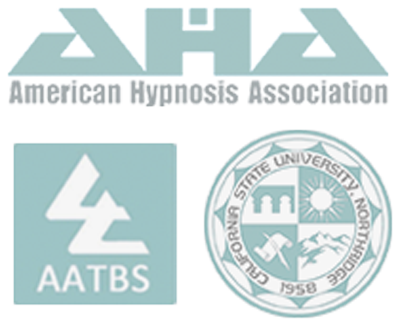A Hypnotist can take control of my mind.
Fact: No one can control your mind unless you allow him or her to do so. Unlike at a stage show, a hypnotherapist communicates post hypnotic suggestions that you want to be given, based on your therapeutic goals and objectives. At no point during hypnosis will you lose control of your mind. If you hear a suggestion that you do not agree with, or do not understand, your subconscious mind will automatically reject it.
I will be made to perform embarrassing acts, such as barking like a dog, or walking like a duck.
Fact: This notion is based on stage hypnosis and Hollywood fiction. The truth is that people who volunteer to be on stage allow themselves to participate in and respond to suggestions designed around entertainment. By contrast, hypnotherapy is a serious process of self-improvement.
Hypnosis comes from black magic or is supernatural.
Fact: Hypnosis is a natural state that has been studied and authenticated scientifically. Hypnotherapists are not psychics or palm readers with special powers. Hypnotherapy is based on years of clinical research by academics including Carl Jung, Milton Eriksson, and John Kappas.
When I am hypnotized, I may not be able to come out of the state.
Fact: Hypnosis is a safe and natural state of hyper-awareness. Any time there is an emergency, a person in hypnosis will naturally be able to come out of hypnosis to respond accordingly.
I have never been in Hypnosis before.
Fact: Every person naturally enters a state of hypnosis several times each day. Examples incluse, just before falling asleep at night, while at the movies, watching TV, driving on the highway, or while reading a good book.
Hypnosis is a Miracle Cure.
Fact: While hypnosis is a relatively quick method of making permanent improvements, there is no such thing as a one-time hypnosis-based miracle cure. Each individual makes progress at his or her own pace.
Hypnosis is a great tool to get someone to confess.
Fact: Hypnosis is not an alternative to a polygraph. Hypnosis cannot force anyone to tell the truth or to confess.
When hypnotized, I will lose all sense of my surroundings, and will have no memory of being hypnotized.
Fact: Hypnosis is not an unconscious state of sleep. In fact, most people report having a heightened sense of awareness, concentration, focus, and hearing. Only a small number of individuals do not have immediate recall of everything that happened while hypnotized. However, this is easily dealt with during hypnotherapy.
Self-Hypnosis is safer, better, or more effective than going to a trained professional.
Fact: Self-Hypnosis can be detrimental when not taught by a trained professional. This is because negative attitudes or beliefs about oneself can be reinforced in the face of improperly structured suggestions given outside the parameters of technically correct process. When taught properly, self-hypnosis is both safe and effective.
I cannot be hypnotized because my mind is too strong or disciplined.
Fact: This is an archaic belief that has been proven untrue. People are in and out of hypnosis every day and as well as during times of environmental, physical, or emotional overload.
A Hypnotist can take control of my mind.
Fact: No one can control your mind unless you allow him or her to do so. Unlike at a stage show, a hypnotherapist communicates post hypnotic suggestions that you want to be given, based on your therapeutic goals and objectives. At no point during hypnosis will you lose control of your mind. If you hear a suggestion that you do not agree with, or do not understand, your subconscious mind will automatically reject it.
I will be made to perform embarrassing acts, such as barking like a dog, or walking like a duck.
Fact: This notion is based on stage hypnosis and Hollywood fiction. The truth is that people who volunteer to be on stage allow themselves to participate in and respond to suggestions designed around entertainment. By contrast, hypnotherapy is a serious process of self-improvement.
Hypnosis comes from black magic or is supernatural.
Fact: Hypnosis is a natural state that has been studied and authenticated scientifically. Hypnotherapists are not psychics or palm readers with special powers. Hypnotherapy is based on years of clinical research by academics including Carl Jung, Milton Eriksson, and John Kappas.
When I am hypnotized, I may not be able to come out of the state.
Fact: Hypnosis is a safe and natural state of hyper-awareness. Any time there is an emergency, a person in hypnosis will naturally be able to come out of hypnosis to respond accordingly.
I have never been in Hypnosis before.
Fact: Every person naturally enters a state of hypnosis several times each day. Examples incluse, just before falling asleep at night, while at the movies, watching TV, driving on the highway, or while reading a good book.
Hypnosis is a Miracle Cure.
Fact: While hypnosis is a relatively quick method of making permanent improvements, there is no such thing as a one-time hypnosis-based miracle cure. Each individual makes progress at his or her own pace.
Hypnosis is a great tool to get someone to confess.
Fact: Hypnosis is not an alternative to a polygraph. Hypnosis cannot force anyone to tell the truth or to confess.
When hypnotized, I will lose all sense of my surroundings, and will have no memory of being hypnotized.
Fact: Hypnosis is not an unconscious state of sleep. In fact, most people report having a heightened sense of awareness, concentration, focus, and hearing. Only a small number of individuals do not have immediate recall of everything that happened while hypnotized. However, this is easily dealt with during hypnotherapy.
Self-Hypnosis is safer, better, or more effective than going to a trained professional.
Fact: Self-Hypnosis can be detrimental when not taught by a trained professional. This is because negative attitudes or beliefs about oneself can be reinforced in the face of improperly structured suggestions given outside the parameters of technically correct process. When taught properly, self-hypnosis is both safe and effective.
I cannot be hypnotized because my mind is too strong or disciplined.
Fact: This is an archaic belief that has been proven untrue. People are in and out of hypnosis every day and as well as during times of environmental, physical, or emotional overload.





